Polestar finally breaks out of its single-model line-up with the Polestar 3 performance SUV
Launched alongside the Polestar 4, the new Polestar 3 is an all-electric SUV that embodies the very best of the Swedish EV brand's approach to design and performance
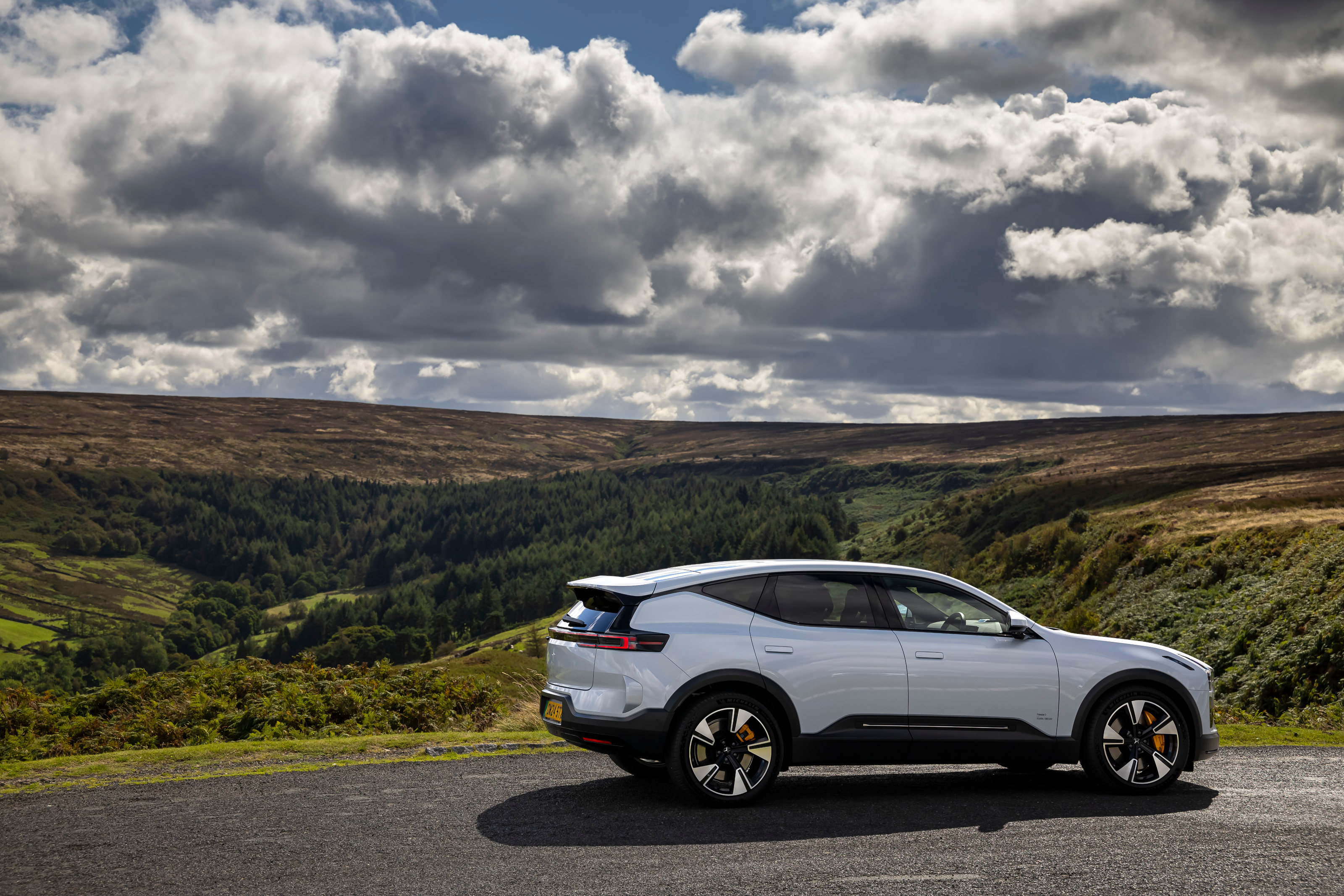
It’s all about the software. That might be a dispiriting statement with which to open a review of a contemporary car, but the bottom line is that today’s EVs are just as dependent on sophisticated code as they are on engineering and design. Polestar seems to know this better than most. As part of the Chinese Geely Group, the Gothenburg-headquartered brand has coasted along for the best part of three years selling only a single car, the Polestar 2.
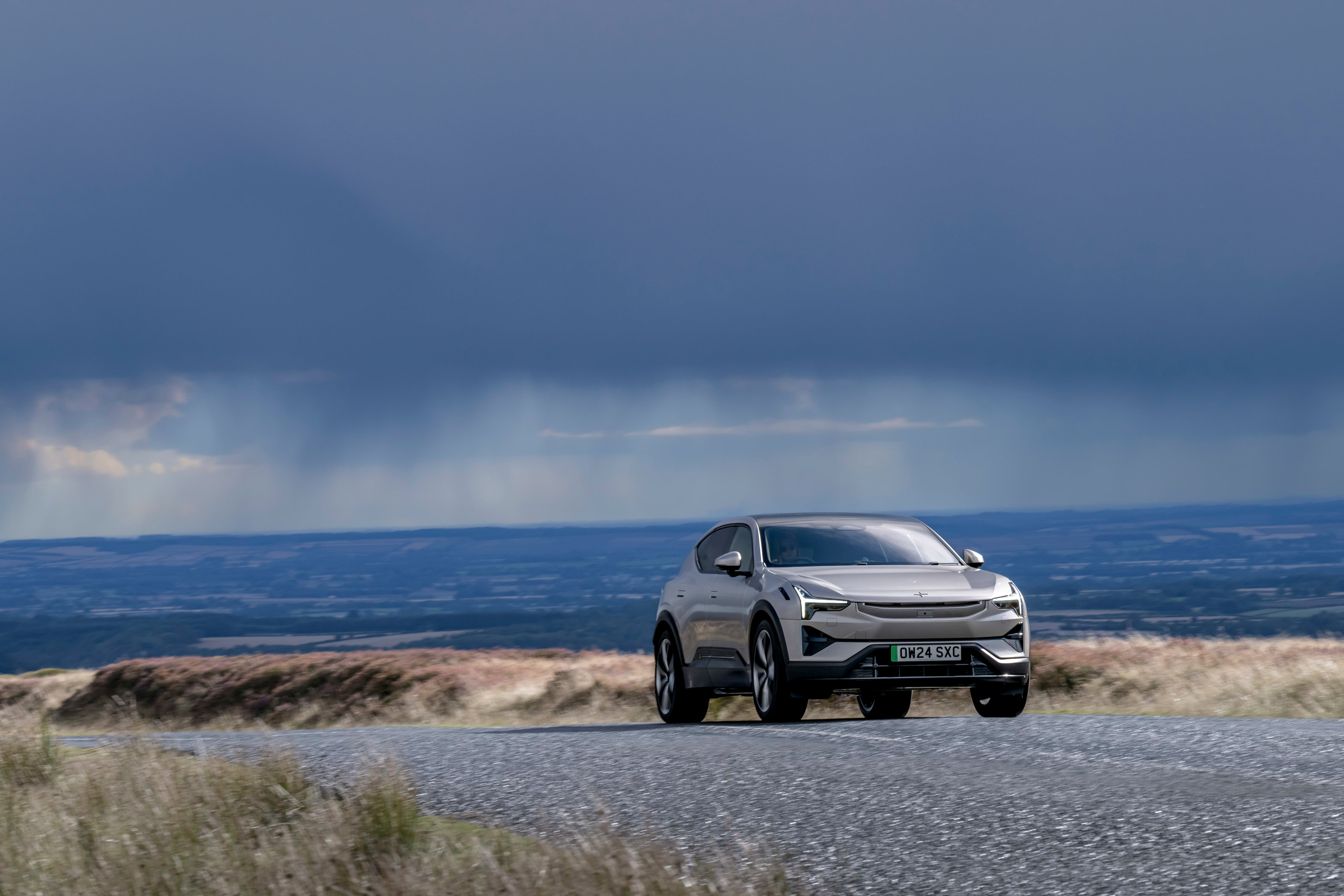
The Polestar 3 electric SUV
The 2 is a great car, one that’s spawned limited editions and a loyal following, with tech specs and a range that is still highly competitive in a very fast-moving market. It was always going to be joined by the Polestar 3 and Polestar 4 (as one would expect), with additional models coming down the line after that. Yet even though the Polestar 3 was first revealed in 2022, and given a grand Benedict Redgrove photo shoot in 2023, it’s only now that the company’s first SUV is hitting the streets.
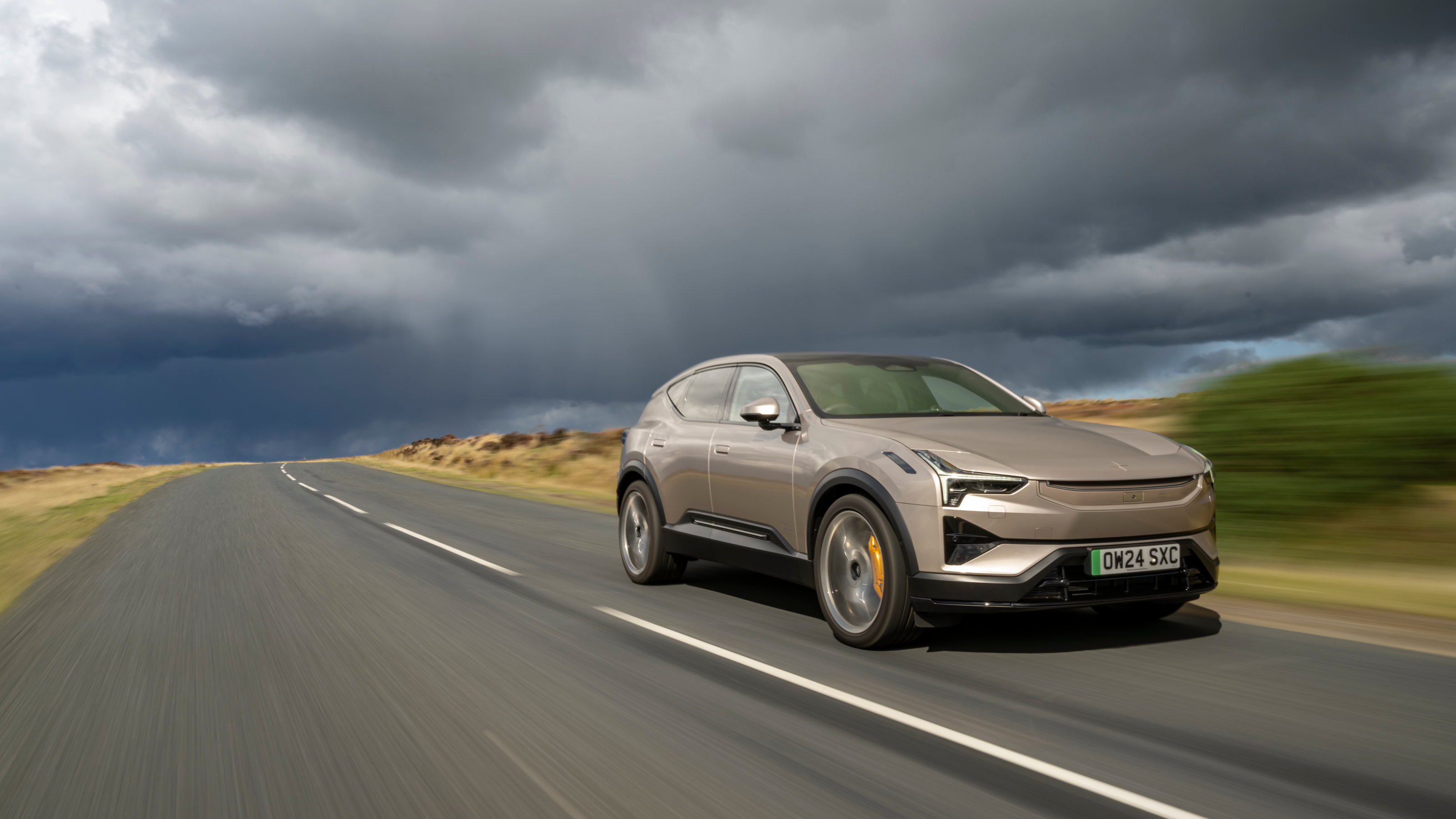
Polestar 3
Before we get into the driving seat and tackle the fantastic scenery on the English-Welsh borders, close to Polestar’s well-chosen launch venue (The Fish Hotel, near Broadway in Worcestershire), it’s worth pondering on the delay. Industry sources suggest that getting this screen-driven car to work seamlessly have proved harder than expected, especially when it comes to dealing with the deluge of data being drunk in by the mix of LIDAR and camera sensors. The Polestar 3 shares the same SPA2 platform as the Volvo EX90, another car that was a little bit tardy getting to market.
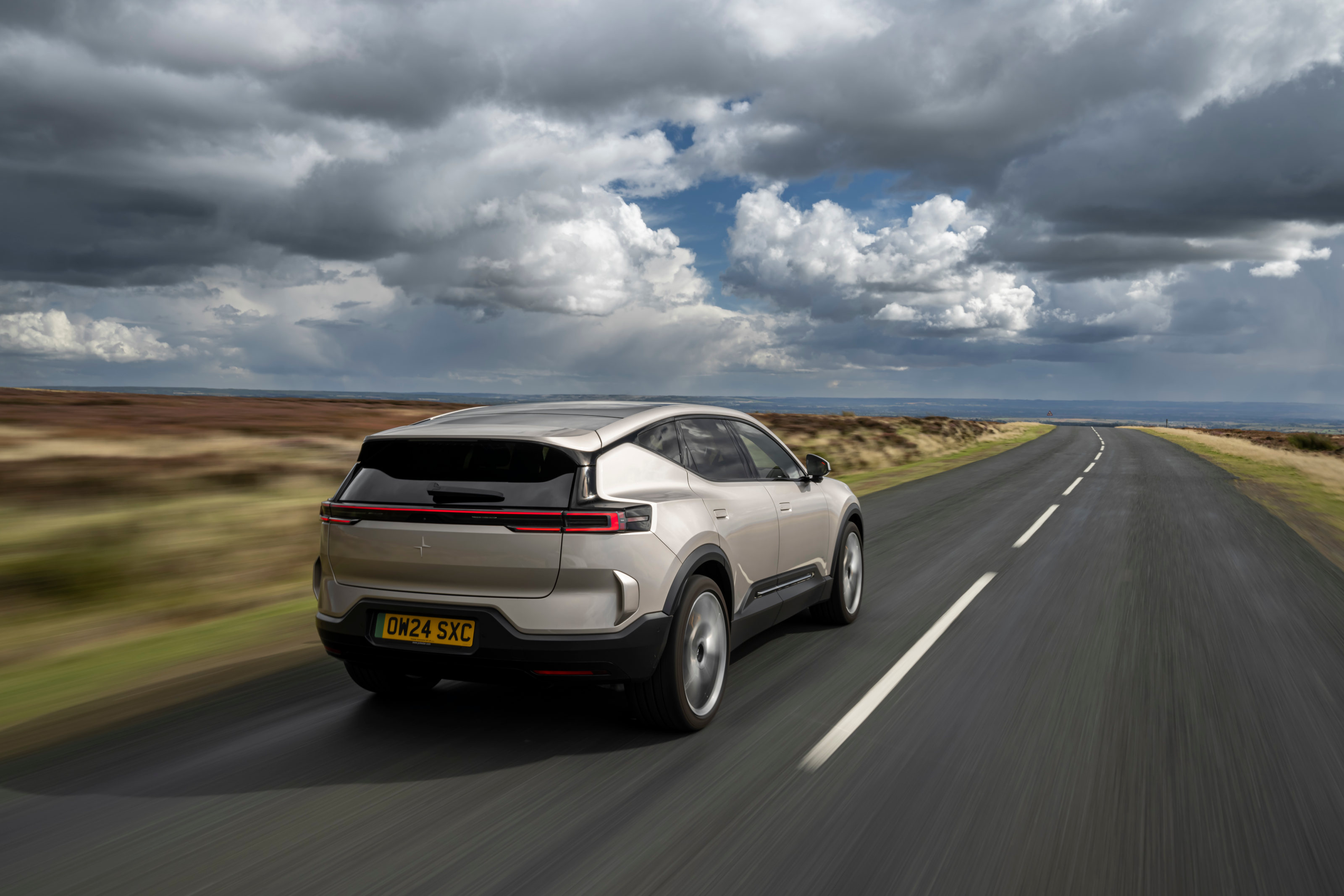
The Polestar 3 is tuned for performance
Other behind-the-scene changes have also taken place since the car was first announced, including the departure of founding CEO Thomas Ingenlath and head of design Maximilian Missoni, two people who have done more than any other to shape the identity of the brand. As a result, Polestar has become synonymous pure, progressive performance, a company that sits at the cutting edge thanks to its huge contingent of engineers and block-chain enabled supplier tracing. Ingenlath has been replaced by Michael Lohscheller, formerly of Opel, and Missoni has headed over to BMW's design team.
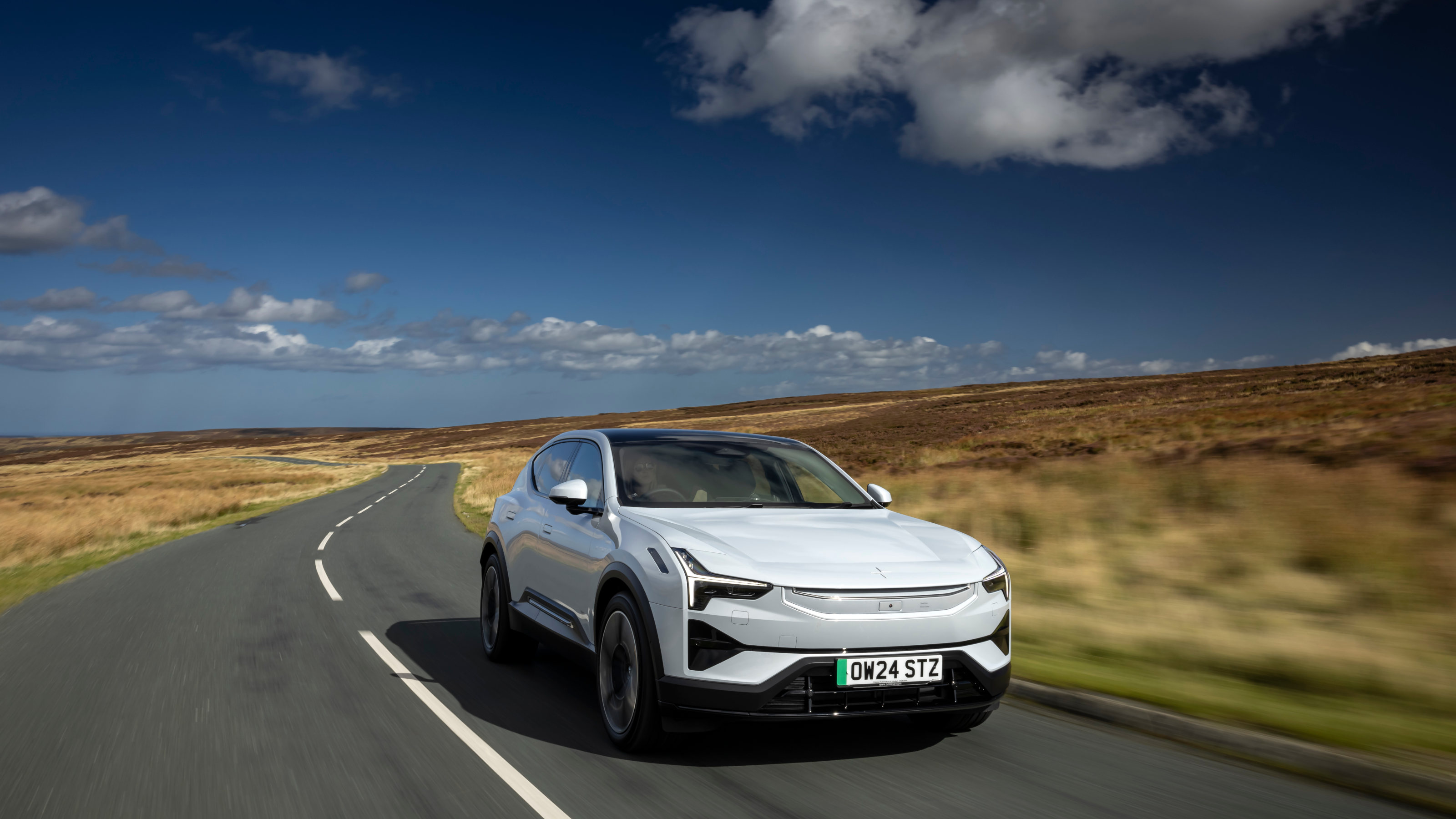
Polestar 3 in the company's signature 'Snow' white body colour
Built in both Chengdu, China, and Ridgeville, South Carolina, (along with the EX90), the Polestar 3 is an SUV with a very different remit to the high-sided vehicles that currently define the genre. At 4.9m long it’s not a small car, but it is lower and sleeker than the standard SUV template, a deliberate attempt to improve both aerodynamics and the car’s silhouette.
Most importantly, the Polestar 3 is the company’s first model that doesn’t have close links to Volvo’s design language (both Polestar 1 and 2 began life as Volvo concept cars). Squint and you’ll see a lingering familial resemblance between the 3’s bluff front end and Volvo’s chamfered boxiness, but overall the 3 is very much its own thing, and all the better for it.
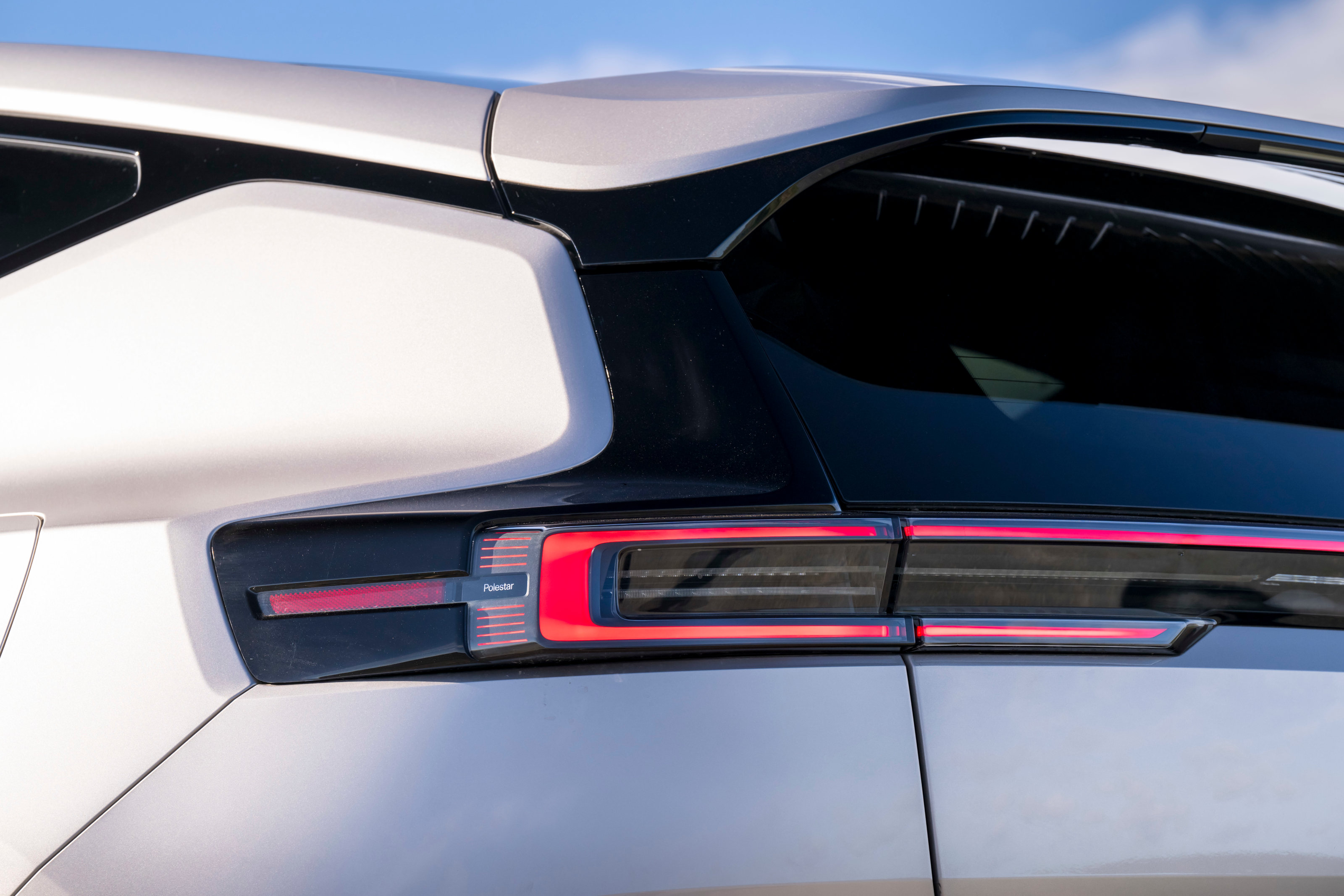
Detail design of Polestar 3's rakish roof profile
In fact, we’ll go so far as to say that this is one of the best resolved car designs on the market, geed up by big wheels and that tapering roofline, with a glasshouse that rises to meet it above a flared out rear wheel arch. It looks muscular and sporty, with spot-on proportions laid bare by Polestar’s insistence on bright, snowy, porcelain-white bodywork for its key imagery. As a result, there’s nowhere for any wonky shut lines or ill-conceived design ideas to hide; it’s all out in the open.
Receive our daily digest of inspiration, escapism and design stories from around the world direct to your inbox.
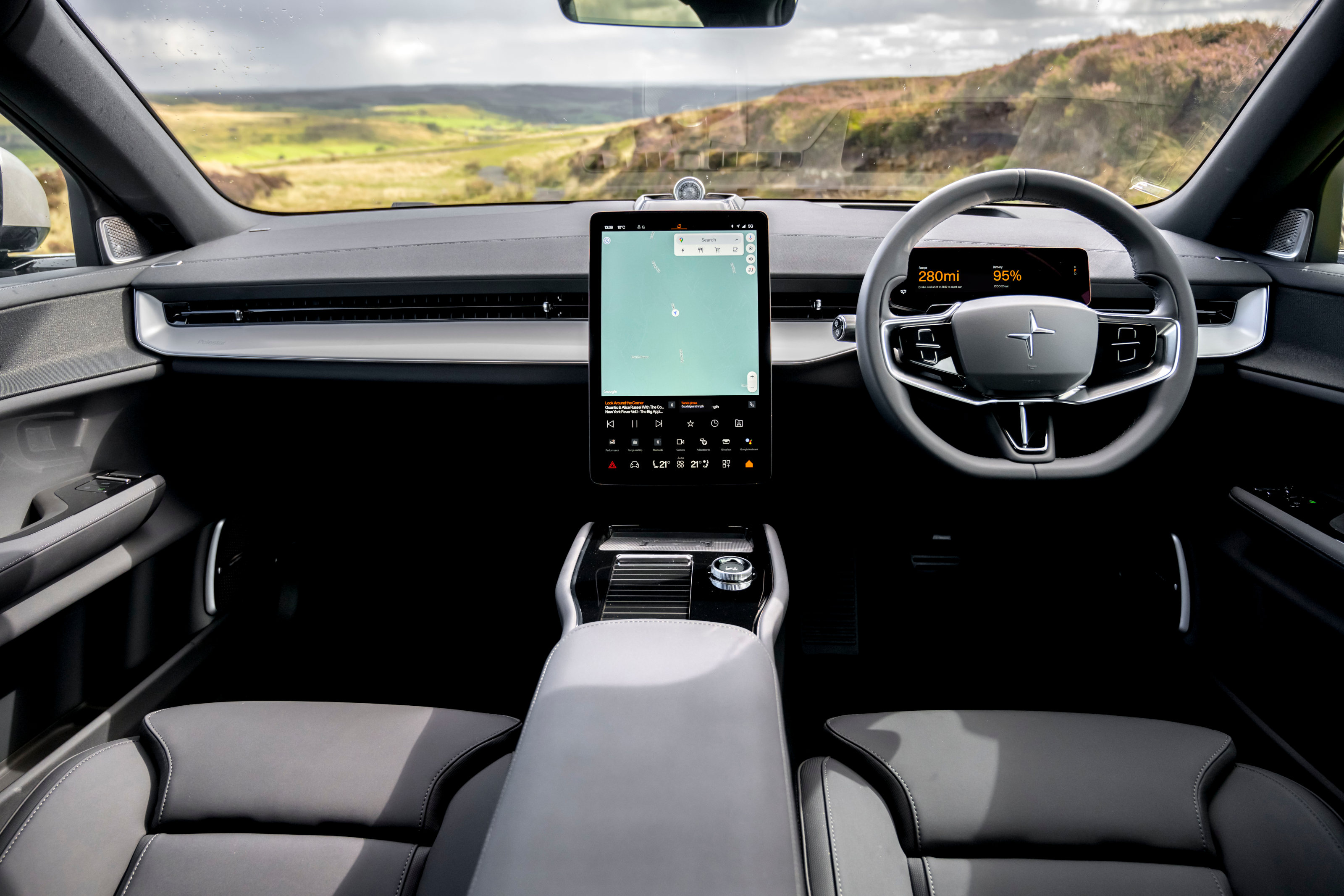
The Polestar 3 dashboard is minimal and (mostly) button-less
Inside, there’s much to admire, with a couple of caveats. Lowering the roofline has done little to impact on the sense of space, helped out by the glazed roof. Surfaces are clean and uncluttered, with a palette of recycled materials now so commonplace as to approach the point of cliché, including polyester textile and flax fibres, together with carpets woven out of used fishing nets and headliner formed from PCR plastics – old water bottles and other domestic detritus to you and I.
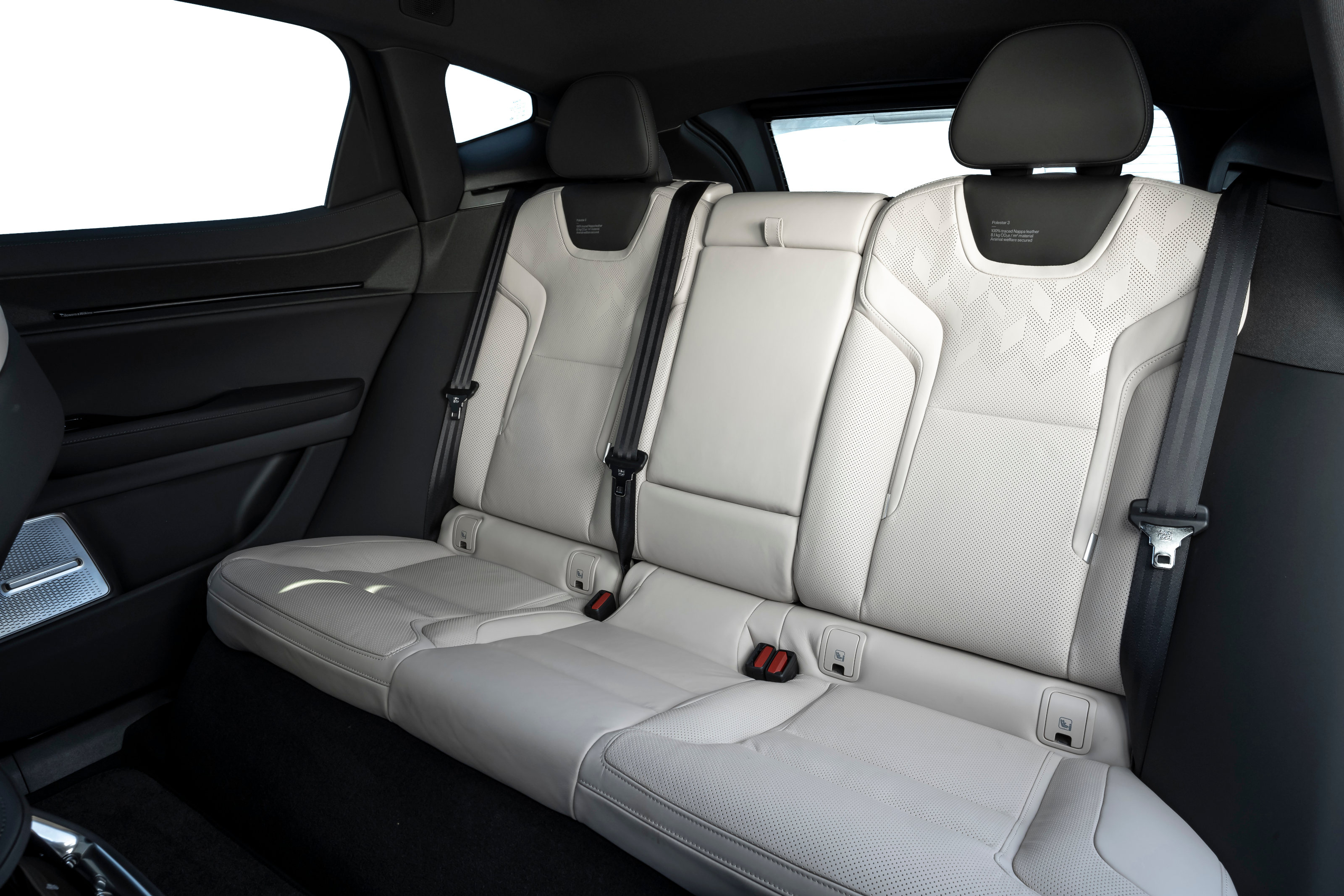
The Polestar 3 interior is light and spacious
The caveats come in the form of the screen-based UI, which does away with practically every single button in the name of efficiency (and presumably economy). What was once a novel approach is now inconvenient: nobody wants to delve into a touchscreen to adjust the mirrors and steering wheel (although admittedly customers will have to do this far less than impatient journalists). Buttons and dials still have their place.
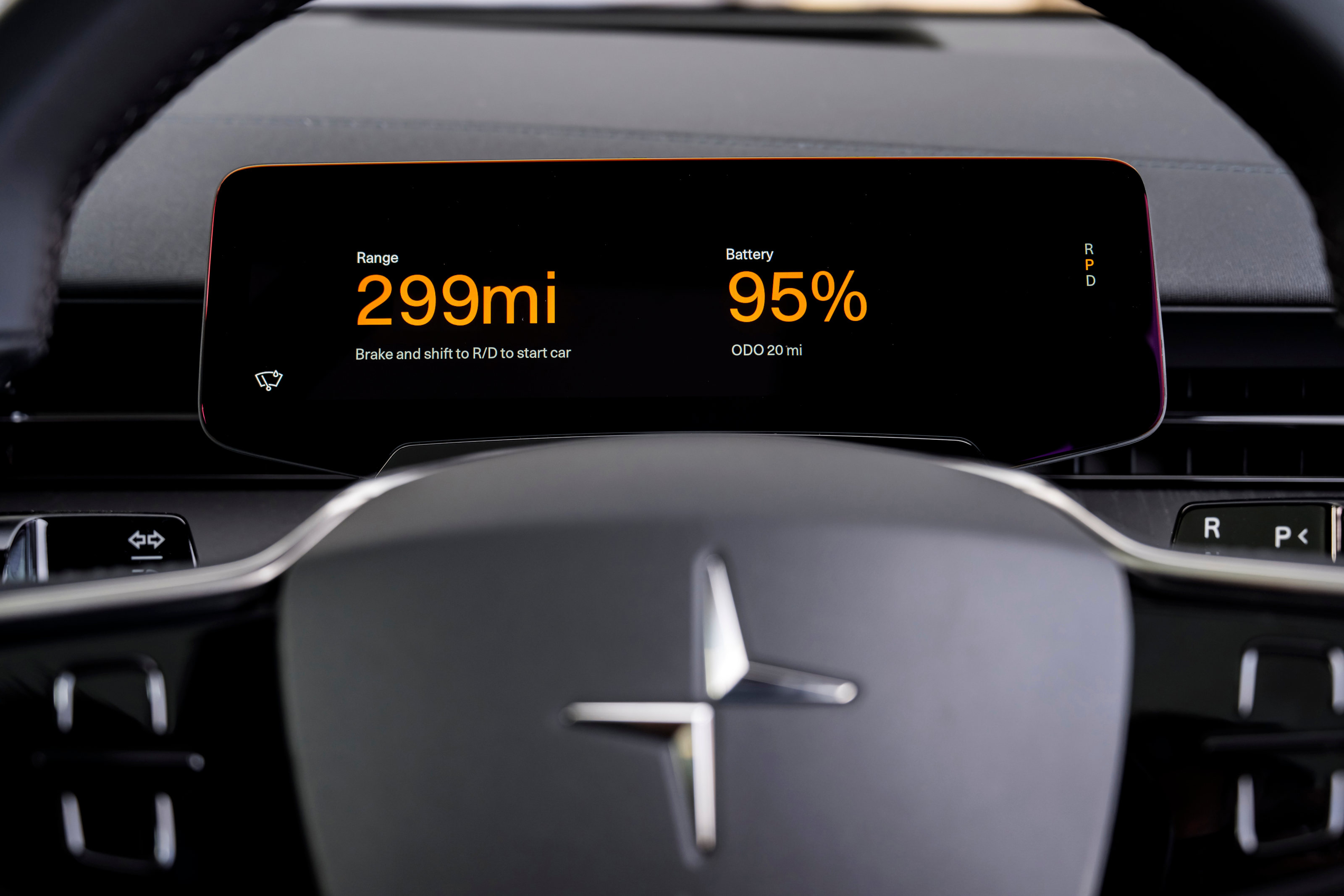
The main screen in the Polestar 3 is supplement by the smaller steering wheel display
Polestar claws back some points with its very clean and legible interface, as well as its principled stand against the need to scroll on a car touchscreen. Any information you need is right there, minimising the time spent glancing over to find the right icon. Other appointments are top drawer, most notably the Bowers & Wilkins hi-fi, a 1,610-watt, 25 speaker system that includes Dolby Atmos and headrest speakers. And although the EX90 has seven seats, the 3 only comes with five, which fold flat to create a massive load area.
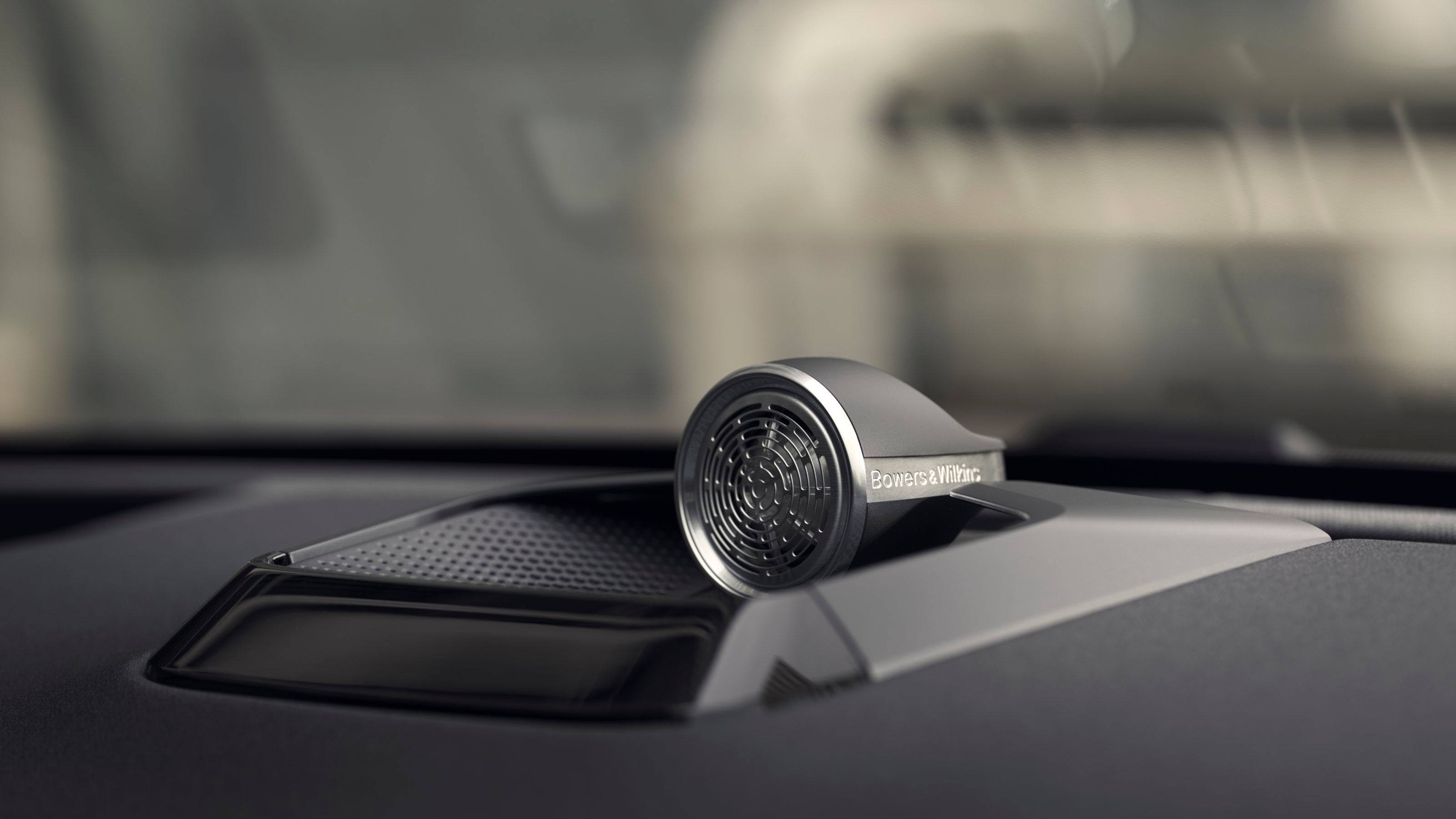
Bowers & Wilkins provided the Polestar 3's 25-speaker audio system
Performance has always been at the heart of the Polestar experience (the original company began life as a tuning specialist for racing Volvos). The Polestar 3 ensures the ‘Sport’ in SUV isn’t just lazy labelling with an optional twin motor performance set-up that’s good for the equivalent of 510hp and a 4.5 second sprint to 60mph.
Conversely, the Long Range single motor model skimps on the neck-snapping acceleration (a perfectly adequate 7.5 seconds), but offers up to 403 miles of range versus the Performance Pack’s 348 mile range. Throw in the inevitable deductions you need to make for real-world conditions and we know which one we’d rather chose. Range beats performance every time.
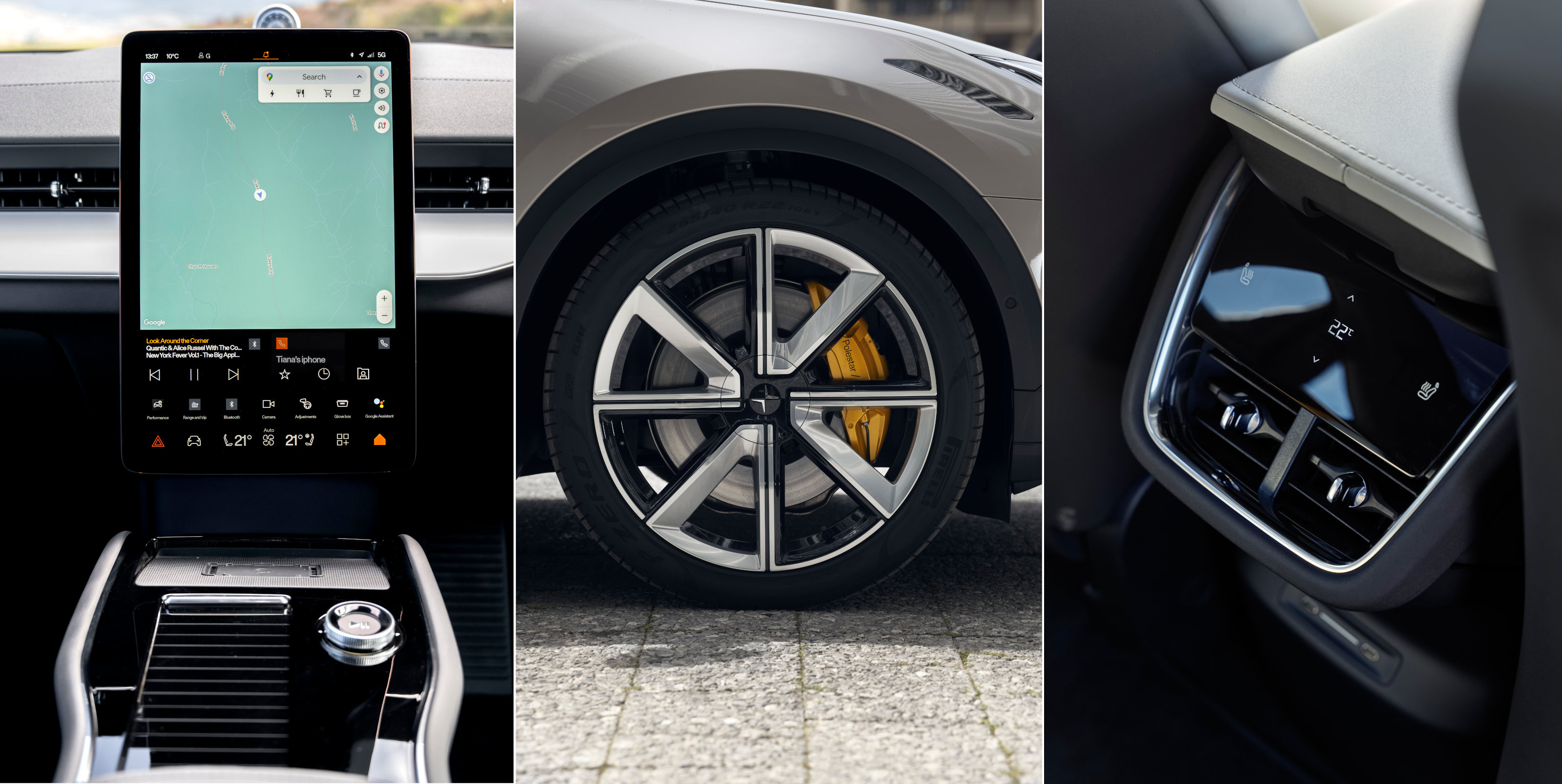
Design details, Polestar 3
The car’s handling and chassis has been tuned with aplomb, making this long, heavy car feel much nimbler. Clever tricks include a form of torque vectoring (adjusting the amount of power going to each individual rear wheel) to make cornering faster, while there’s also 3-level adaptive air suspension to soak up the bumps that would otherwise resound through the weighty structure. The steering has a good amount of feedback and you always feel like you're embedded within the car, rather than sitting on it and just going for the ride.
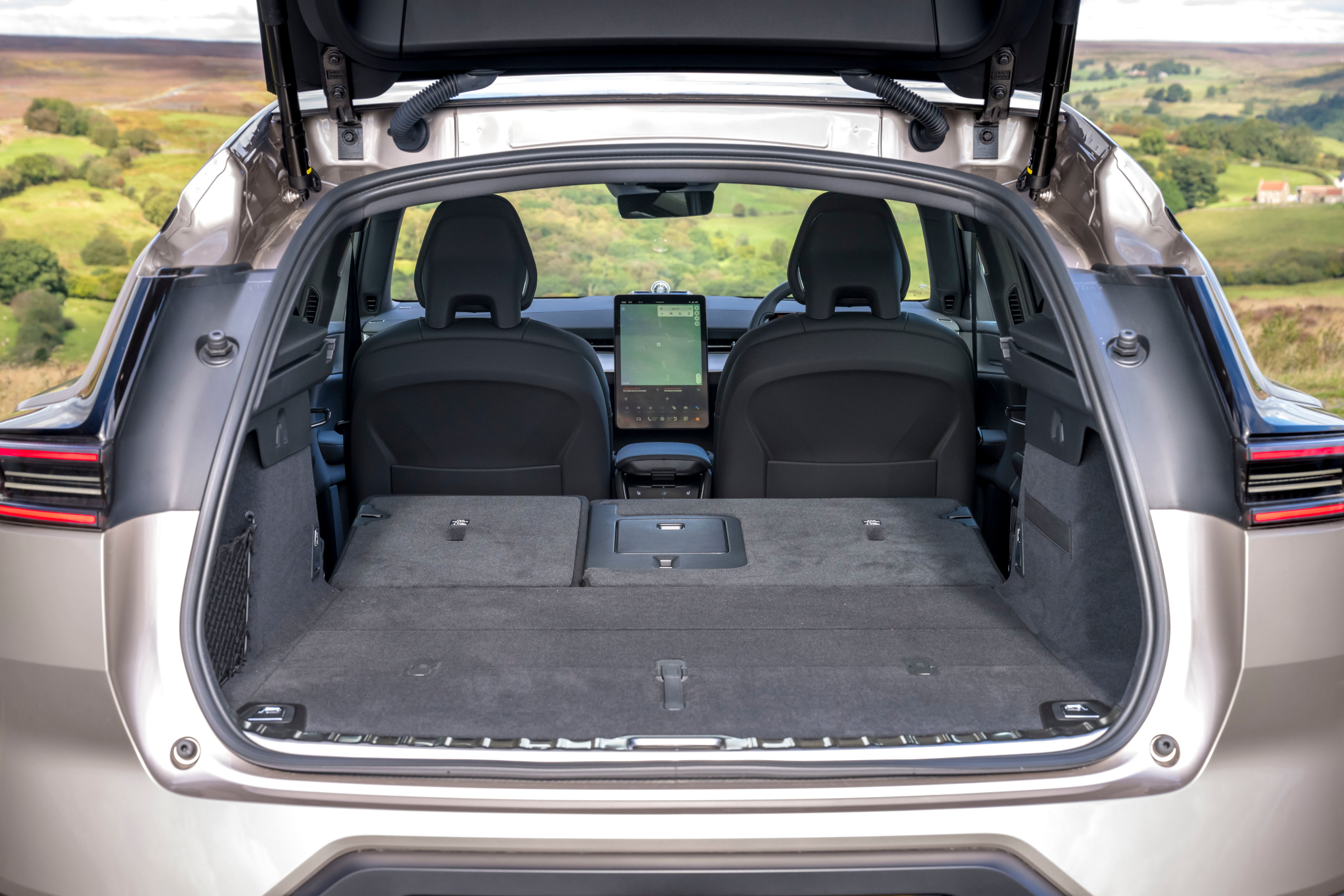
Polestar 3 offers a capacious load bay
Not so long ago, this car would have been called a ‘crossover’. For some reason, that term failed to get much traction with consumers, who remain wedded to the idea that SUV is the one size that fits all. And to be honest, the Polestar 3 gets pretty close to being that automotive unicorn. The other pressing question is how it squares up to the Polestar 4? Watch this space.
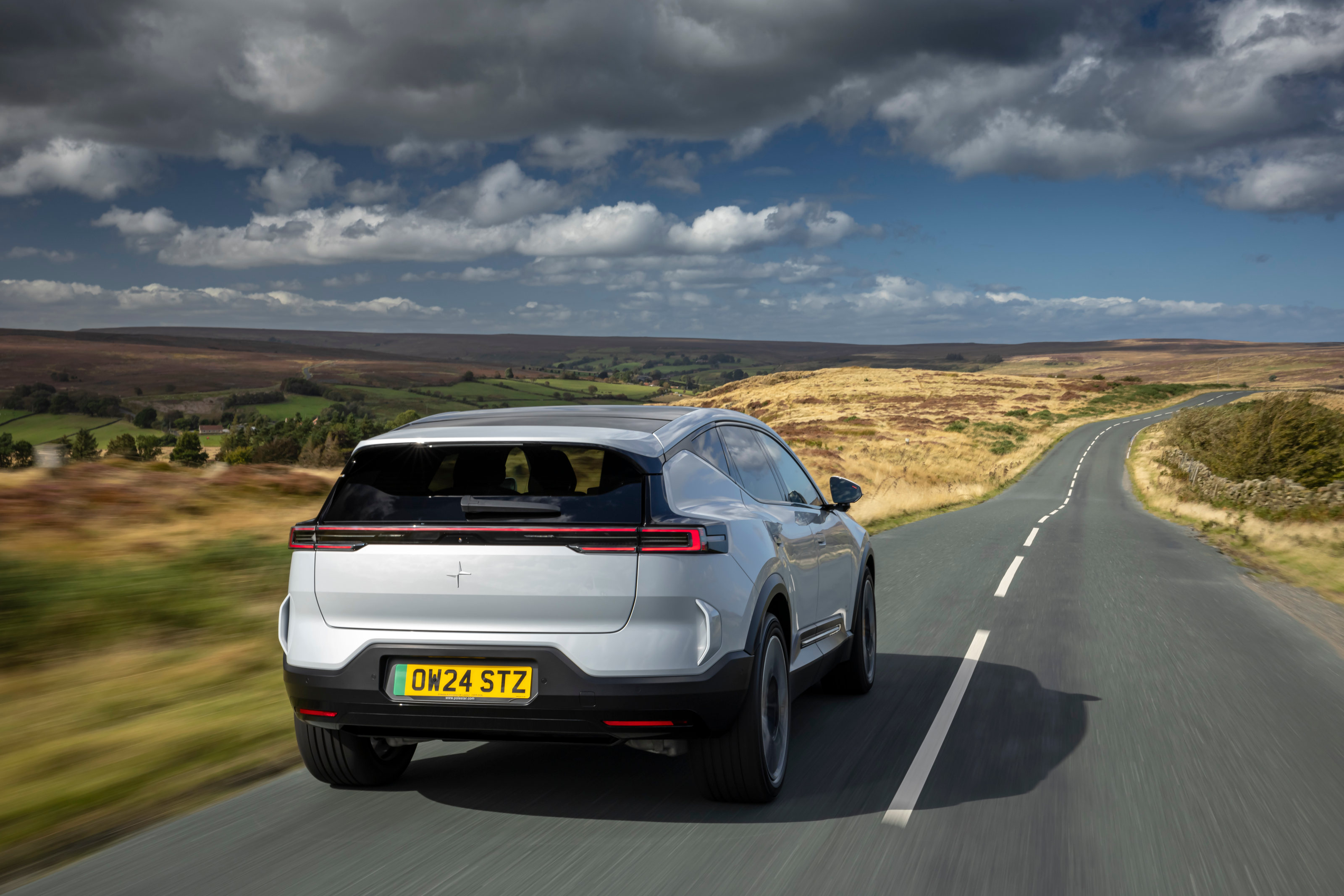
The new Polestar 3
Polestar 3, from £69,900 for the Long Range single motor model. The Long range Dual motor Performance model is £81,500, Polestar.com, PolestarCars.com
Jonathan Bell has written for Wallpaper* magazine since 1999, covering everything from architecture and transport design to books, tech and graphic design. He is now the magazine’s Transport and Technology Editor. Jonathan has written and edited 15 books, including Concept Car Design, 21st Century House, and The New Modern House. He is also the host of Wallpaper’s first podcast.